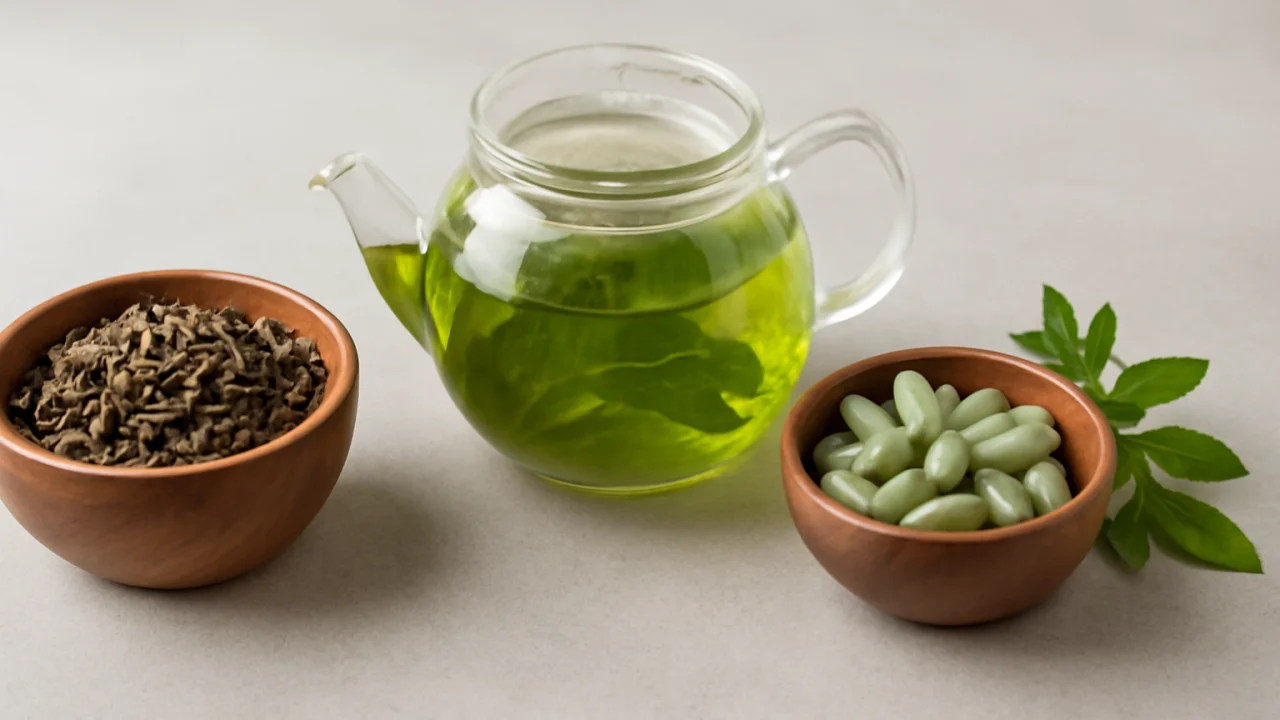
Top Herbal Weight-Loss Cures & Methods: A Practical Guide
📑 Contents
Top Herbal Weight-Loss Cures & Methods: A Practical Guide
Trying to shed excess pounds naturally? Herbal weight-loss cures and methods have gained popularity as people seek safer, plant-based alternatives to traditional diet pills and extreme regimens. This comprehensive guide explores the most effective herbs, their mechanisms, practical usage tips, and how to integrate them into your healthy lifestyle. Whether you’re just starting your journey or looking for ways to boost your results, these insights will help you make informed decisions.
Understanding Herbal Weight-Loss: How Do Herbs Work?

Herbal remedies for weight loss harness the natural properties of plants to support metabolism, suppress appetite, enhance fat burning, and improve digestion. Unlike synthetic drugs, these herbs are often gentler on the body and can provide additional health benefits. It's important, however, to remember that no herb is a miracle cure—success depends on a balanced approach involving diet, exercise, and lifestyle changes.
Top Herbal Weight-Loss Cures: What Science Says

Let’s explore some of the most researched and commonly used herbs for weight loss, including their benefits, scientific backing, and best practices for use.
1. Green Tea Extract
Rich in antioxidants and catechins, green tea extract is one of the most studied herbal supplements for weight loss. Research suggests it can boost metabolism and promote fat oxidation, especially when combined with moderate exercise.
- How it works: Increases calorie burning and supports fat breakdown.
- How to use: Take as a supplement or drink 2-3 cups of brewed green tea daily.
- Key tip: Avoid high doses to prevent potential side effects like insomnia or stomach upset.
2. Garcinia Cambogia
Garcinia cambogia, derived from a tropical fruit, contains hydroxycitric acid (HCA) which may inhibit fat production and reduce appetite. Some studies have shown modest weight loss benefits, but results are mixed.
- How it works: May curb appetite and block fat-producing enzymes.
- How to use: Commonly available in capsule form; follow manufacturer’s dosage instructions.
- Key tip: Look for supplements with at least 50% HCA content for best results.
3. Glucomannan (Konjac Root)
Glucomannan is a soluble fiber from the konjac plant that expands in the stomach, promoting feelings of fullness and reducing calorie intake. Clinical trials support its use for modest weight loss when combined with a healthy diet.
- How it works: Absorbs water and expands, leading to reduced hunger.
- How to use: Take with plenty of water, 15-30 minutes before meals.
- Key tip: Always take with sufficient water to avoid choking or digestive blockage.
4. Forskolin (Coleus Forskohlii)
Forskolin, extracted from the roots of Coleus forskohlii, is marketed for its potential to increase fat burning and promote lean body mass. Limited studies show some promise, but results are not conclusive.
- How it works: May stimulate enzymes that help burn fat.
- How to use: Available in capsule or tablet form; follow recommended dosages.
- Key tip: Consult a healthcare provider if you have low blood pressure or take blood thinners.
5. Bitter Orange (Citrus Aurantium)
Bitter orange extract contains synephrine, a compound similar to ephedrine. It is sometimes used in weight-loss supplements as a metabolism booster. However, it can have stimulating effects and potential risks.
- How it works: May increase calorie burning and suppress appetite.
- How to use: Use with caution; avoid combining with other stimulants.
- Key tip: Not recommended for people with heart conditions or high blood pressure.
Comparing Popular Herbal Weight-Loss Methods

The table below compares key features, benefits, and cautions for the most popular herbal weight-loss cures:
| Herb | Main Benefit | Common Form | Recommended Use | Main Caution |
|---|---|---|---|---|
| Green Tea Extract | Boosts metabolism, burns fat | Tea, capsules | 2-3 cups/day or as directed | Caffeine sensitivity, insomnia |
| Garcinia Cambogia | Reduces appetite, blocks fat | Capsules, tablets | 500mg before meals | Digestive upset, avoid in pregnancy |
| Glucomannan | Promotes fullness, lowers calorie intake | Powder, capsules | 1g with water before meals | Choking risk if not taken with water |
| Forskolin | May boost fat breakdown | Capsules | 250mg twice daily | Low blood pressure, drug interactions |
| Bitter Orange | Increases calorie burning | Extract, capsules | As directed, with caution | Heart risk, stimulant effects |
How to Safely Use Herbal Weight-Loss Cures
While herbs can be a valuable addition to your weight-loss toolkit, safety is paramount. Here are practical tips to ensure you use these remedies effectively and responsibly:
- Always follow recommended dosages and manufacturer instructions.
- Start with the lowest effective dose to assess tolerance.
- Consult your healthcare provider if you have existing health conditions or take prescription medications.
- Monitor your body for side effects such as digestive upset, headaches, or changes in heart rate.
- Choose high-quality supplements from reputable brands to avoid contamination or inaccurate labeling.
Integrating Herbal Methods into Your Weight-Loss Plan
Herbal remedies work best as part of a holistic approach. Here’s how to maximize your results:
- Balanced diet: Focus on whole foods, lean proteins, healthy fats, and plenty of vegetables.
- Physical activity: Combine cardio, strength training, and flexibility exercises.
- Hydration: Drink enough water to support metabolism and aid fiber-based herbs like glucomannan.
- Sleep: Aim for 7-8 hours per night, as poor sleep can hinder weight loss.
- Mindful eating: Use herbal appetite suppressants to help you tune in to hunger and fullness cues.
Potential Risks and Side Effects
Although herbal weight-loss methods are generally safer than many pharmaceuticals, they are not without risks. Common side effects may include digestive discomfort, allergic reactions, or interactions with other medications. Stimulant herbs like bitter orange can increase heart rate and blood pressure. Pregnant or breastfeeding women, and those with chronic health conditions, should avoid most herbal weight-loss supplements unless directed by a healthcare professional.
Frequently Asked Questions (FAQs)
1. Are herbal weight-loss cures safe?
Most are safe for healthy adults when used as directed. However, certain herbs can cause side effects or interact with medications. It's best to consult your doctor before starting any new supplement.
2. How long does it take to see results with herbal weight-loss methods?
Results vary depending on the herb, dosage, and your overall lifestyle. Most people notice modest changes within a few weeks when combined with a healthy diet and exercise.
3. Can I combine different herbal supplements?
Some combinations are safe, while others may increase the risk of side effects. Avoid combining multiple stimulants (like green tea and bitter orange) and always check with a healthcare provider first.
4. Do I need to change my diet while using herbal remedies?
Yes! Herbs are most effective when paired with a balanced, calorie-controlled diet and regular exercise. They are not a substitute for healthy habits.
5. Are there any herbs to avoid?
Stay away from unregulated or banned substances such as ephedra. Be cautious with stimulant herbs and always research the safety profile of any herb you consider.











